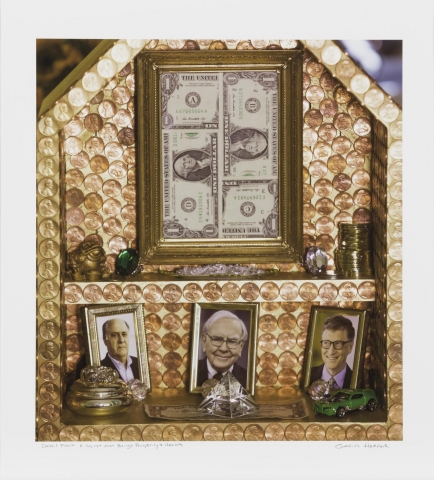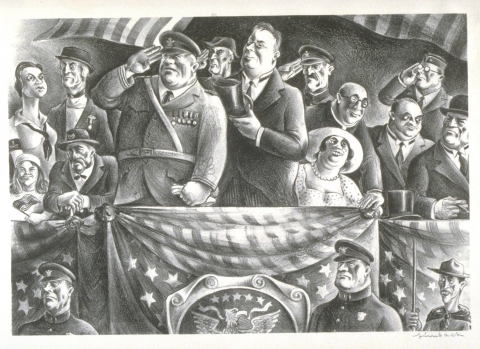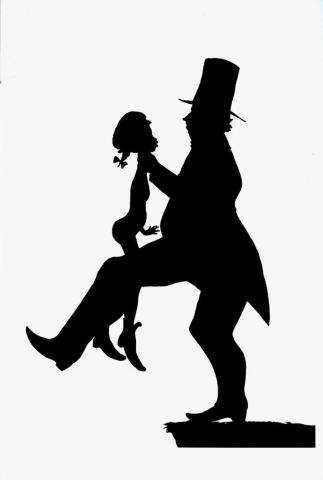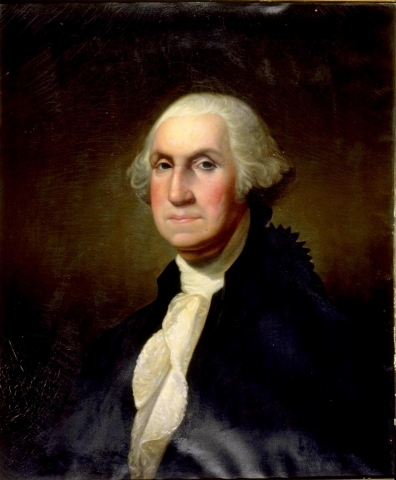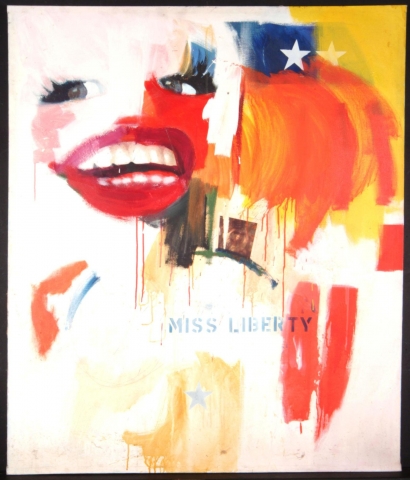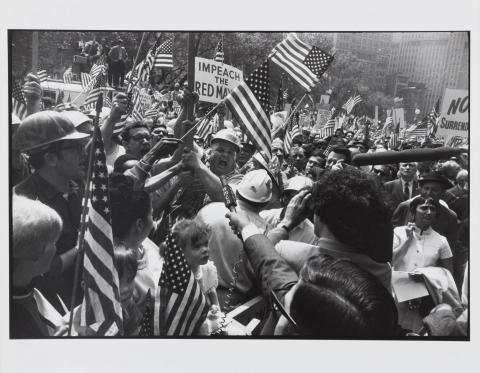
DIALOGUE
DECK
A Conversation Exercise for
Political Reflection
At the precipice of one of the most highly charged US Presidential Elections in recent history, the U-M Museum of Art (UMMA) and the Edward Ginsberg Center offer this Dialogue Deck exercise as a platform to examine and explore social and political norms, values, and beliefs through shared dialogue and reflection.
Each of these images was thoughtfully selected by UMMA and Ginsberg Center staff and faculty, drawing from UMMA’s permanent collection with an emphasis placed on artworks that both directly and indirectly evoke the culture, politics, and history of the USA. We believe that visual art offers a creative platform for exploring complex and difficult issues. Images help to expand our intellectual and emotional capacities, and offer opportunities to describe the world as we see it and imagine how others might see it differently.
This Dialogue Deck, inspired by an existing Ginsberg Center activity, is created in conjunction with the 2020 Ginsberg Center Dewey Lecture, "Building a Civic Temper." The theme of the lecture is inspired by William James' 1906 Essay, “The Moral Equivalent of War.” While some of James' assertions are cause for critique, his primary observation, that we need to focus on building our shared public life, remains more important than ever. We hope you’ll use this deck to create meaningful dialogue and connection with your family, friends, colleagues, and maybe even yourself.
Ideally, democracy is what would happen between elections.
Masha Gessen, Journalist, The New Yorker, Sept. 25, 2019
How To Use This Page
Select and click on an image below (there are 12 total, you may need to click “more” to see all of the available options).
The image will open and be displayed alongside two randomly selected discussion prompts. You can refresh the prompts at any time by clicking the “New Prompts” button. Each suggested exercise listed below offers a different way of interacting with the images and prompts for conversation and reflection.
Group Exercise
As a group, choose just one image to discuss. Next, agree on which one of the available prompts you will discuss as a group. Discuss the prompt and then debrief using the Debriefing Questions below.
Solo Reflection
Choose one image to consider. Reflect privately on the prompts as they relate to the image. You may wish to journal your thoughts as well. Refresh the prompts as often as you’d like. Select another image and repeat.
Share your reflections on social media and tag us at @ummamuseum @ginsbergcenter.
Select an Image
Debriefing Questions
Use the following questions to facilitate group discussions after you’ve completed the group exercise:
Our unique individual and group experiences and our social identities play particularly powerful roles in shaping our perceptions. Keep this in mind as you discuss the ways in which your political beliefs and identities were formed, and how they impact you today.
- What are the common threads in this conversation? How do you make sense of differences?
- Everyone looked at the same images, but saw different things in them. We often see this same phenomenon in politics, where two people look at the same policy or issue, and one person sees X while the other sees Y. Have you ever discussed a political topic with a friend, family member or colleague and wondered, “How can we be talking about the same thing on the surface, but seeing it so differently?”
- How does knowing the title of the artwork or the time period in which it was created change your perspective?
- What about this experience compels you to take action? What might you do differently after this conversation?
- In what ways might you use these cards in your life or work?
- This exercise was designed to explore the idea of building our civic temper - the notion that a shared public life is central to democracy. How does this exercise ask you to think differently about the role of shared public life in our democracy? What fuels your civic life?
Print and Play
Download a printable version of the Dialogue Deck and play different versions of these conversation exercises unique to the physical edition of the game.
Or, follow these links to download the full list of discussion prompts or download the full list of image information.
Download Printable Version [PDF]
Created By

for the 2020 Dewey Lecture: Building a Civic Temper
with additional support from the U-M Democracy & Debate Theme Semester.
UMMA Digital Initiatives are supported by the Sandra and Louis Grotta Fund.

